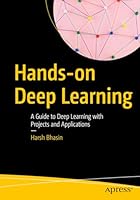
Commonsense Reasoning, 2nd Edition: An Event Calculus Based Approach
- Length: 516 pages
- Edition: 2
- Language: English
- Publisher: Morgan Kaufmann
- Publication Date: 2014-10-16
- ISBN-10: 0128014164
- ISBN-13: 9780128014165
- Sales Rank: #2378355 (See Top 100 Books)
To endow computers with common sense is one of the major long-term goals of artificial intelligence research. One approach to this problem is to formalize commonsense reasoning using mathematical logic. Commonsense Reasoning: An Event Calculus Based Approach is a detailed, high-level reference on logic-based commonsense reasoning. It uses the event calculus, a highly powerful and usable tool for commonsense reasoning, which Erik Mueller demonstrates as the most effective tool for the broadest range of applications. He provides an up-to-date work promoting the use of the event calculus for commonsense reasoning, and bringing into one place information scattered across many books and papers. Mueller shares the knowledge gained in using the event calculus and extends the literature with detailed event calculus solutions that span many areas of the commonsense world.
The Second Edition features new chapters on commonsense reasoning using unstructured information including the Watson system, commonsense reasoning using answer set programming, and techniques for acquisition of commonsense knowledge including crowdsourcing.
Drawing upon years of practical experience and using numerous examples and illustrative applications Erik Mueller shows you the keys to mastering commonsense reasoning. You’ll be able to:
- Understand techniques for automated commonsense reasoning
- Incorporate commonsense reasoning into software solutions
- Acquire a broad understanding of the field of commonsense reasoning.
- Gain comprehensive knowledge of the human capacity for commonsense reasoning
Table of Contents
Chapter 1: Introduction
Part I: Foundations
Chapter 2: The Event Calculus
Part II: Commonsense Phenomena
Chapter 3: The Effects of Events
Chapter 4: The Triggering of Events
Chapter 5: The Commonsense Law of Inertia
Chapter 6: Indirect Effects of Events
Chapter 7: Continuous Change
Chapter 8: Concurrent Events
Chapter 9: Nondeterministic Effects of Events
Part III: Commonsense Domains
Chapter 10: Space
Chapter 11: The Mental States of Agents
Part IV: Default Reasoning
Chapter 12 Default Reasoning
Part V: Programs and Applications
Chapter 13: The Discrete Event Calculus Reasoner
Chapter 14: Applications
Chapter 15: Commonsense Reasoning Using Answer Set Programming
Part VI: Logical and Nonlogical Methods
Chapter 16: Logics for Commonsense Reasoning
Chapter 17: Nonlogical Methods for Commonsense Reasoning
Chapter 18: Commonsense Reasoning Using Unstructured Information
Part VII: Knowledge Acquisition
Chapter 19: Acquisition of Commonsense Knowledge
Part VIII: Conclusion 365
Chapter 20: Conclusion
Part IX: Appendices
Appendix A: Logical Foundations
Appendix B: Equivalence of EC and DEC
Appendix C: Events with Duration
Appendix D: The Discrete Event Calculus with Branching Time
Appendix E: The Event Calculus and Temporal Action Logics
Appendix F: Answers to Selected Exercises

Arduino & MicroPython with ESP32: A Beginner's Guide to Hands-On Learning and DIY Projects - Part 1

Microsoft 365 Copilot At Work: Using AI to Get the Most from Your Business Data and Favorite Apps





